 Animals
Animals  Animals
Animals  Facts
Facts Ten Unexpectedly Fascinating Facts About Rain
 Crime
Crime 10 Dark Details of Australia’s Gruesome Unsolved Wanda Murders
 Humans
Humans 10 Unsung Figures Behind Some of History’s Most Famous Journeys
 Animals
Animals 10 Species That Refused to Go Extinct
 Weird Stuff
Weird Stuff 10 Weird Things People Used to Do at New Year’s
 Our World
Our World 10 Archaeological Discoveries of 2025 That Refined History
 Weird Stuff
Weird Stuff 10 Fascinating Facts You Might Not Know About Snow
 Miscellaneous
Miscellaneous Top 10 Things Crypto Was Supposed to Change & What Actually Did
 History
History 10 Huge Historical Events That Happened on Christmas Eve
 Animals
Animals 10 Strange Times When Species Evolved Backward
 Facts
Facts Ten Unexpectedly Fascinating Facts About Rain
 Crime
Crime 10 Dark Details of Australia’s Gruesome Unsolved Wanda Murders
Who's Behind Listverse?

Jamie Frater
Head Editor
Jamie founded Listverse due to an insatiable desire to share fascinating, obscure, and bizarre facts. He has been a guest speaker on numerous national radio and television stations and is a five time published author.
More About Us Humans
Humans 10 Unsung Figures Behind Some of History’s Most Famous Journeys
 Animals
Animals 10 Species That Refused to Go Extinct
 Weird Stuff
Weird Stuff 10 Weird Things People Used to Do at New Year’s
 Our World
Our World 10 Archaeological Discoveries of 2025 That Refined History
 Weird Stuff
Weird Stuff 10 Fascinating Facts You Might Not Know About Snow
 Miscellaneous
Miscellaneous Top 10 Things Crypto Was Supposed to Change & What Actually Did
 History
History 10 Huge Historical Events That Happened on Christmas Eve
10 Great Ancient Rulers And Their Momentous Feats
Although we know of many rulers from antiquity, there are only a select few who stand out as beacons of what can be accomplished. Here are 10 great ancient rulers and their momentous feats.
10 Akhenaton
Founding The First Monotheistic Religion
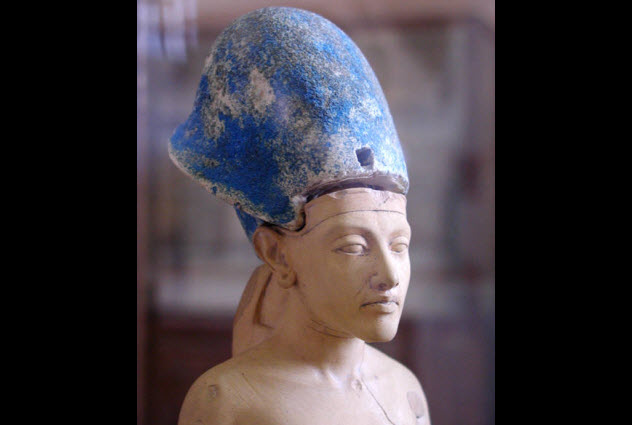
Around 1348 BC, a few short years into his reign, Akhenaton introduced the worship of Aten (the disk of the Sun) as the first monotheistic religion. Akhenaton also built himself (and the religion) a capital city on virgin ground to spread his influence.
However, much of the population, especially the elite of Egyptian society, bristled at the change from a polytheistic religion. When Akhenaton died in 1334 BC, the old ways of religious worship were restored.
Accordingly, his son changed his name from Tutankhaten to Tutankhamun, a reflection of his allegiance to the god Amun. The memory of Akhenaton and his family was pushed into obscurity, a kind of damnatio memoriae.
He remained there until the 19th century when archaeologists uncovered artifacts detailing his exploits. Theories about his influence on the establishment of Judaism furthered his fame in scholarly circles.
9 Qin Shi Huang
Uniting All Of China For The First Time
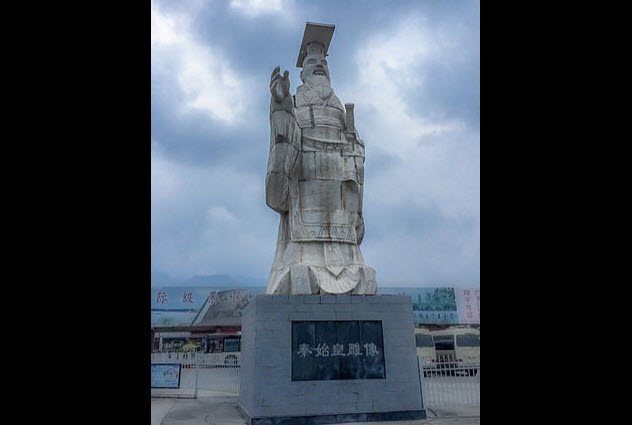
Qin Shi Huang did more than unite China for the first time and become the first person to proclaim himself emperor. He was also the brains behind the Great Wall and his own mausoleum, which housed the famous Terracotta Army.
In 246 BC, he ascended to the throne of the powerful Qin state at age 13. However, he was unable to rule until he turned 21. Over the next 17 years, Emperor Qin used a combination of political guile and excellent military leadership to subjugate the seven other states.
He executed many of his political enemies and silenced his other critics. In 213 BC, he went so far as to burn every book except those dealing with agriculture, medicine, and prognostication. Historical records of his dynasty as well as the books in the imperial library were also spared.
Perhaps hungry for a larger and better legacy, Emperor Qin constantly searched for an elixir of immortality. It ultimately proved fruitless as he died ingesting mercury pills created by his alchemists.
Unfortunately, like many empires formed quickly through conquest by a strong leader, the China that Qin Shi Huang left behind collapsed less than four years after his death.
Even so, he was of critical importance to the development of China as a united country. As Harvard’s Peter Bol says, “We wouldn’t have a China without Qin Shi Huang.”
8 Cyrus The Great
Founding The Achaemenid Empire
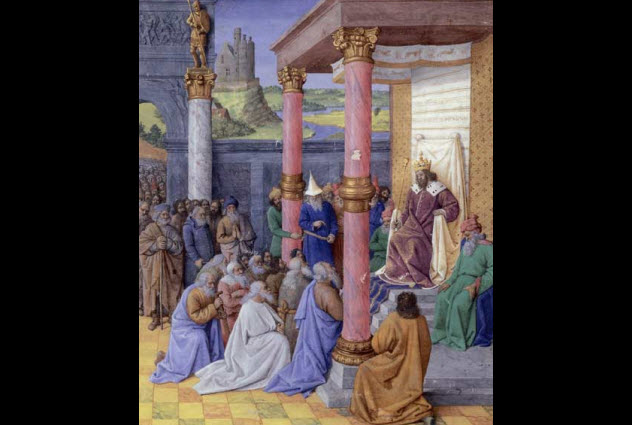
Cyrus the Great (aka Cyrus II) was born at the beginning of the sixth century BC, most likely in Persia. Like many ancient rulers, his early life is surrounded by myth.
Cyrus’s mother had a vision in which Cyrus overthrew his grandfather the king. Terrified by the vision, his grandfather ordered Cyrus to be killed. Luckily, the chief adviser to the king ignored the order and sent the boy to live with a shepherd. Once Cyrus reached adulthood, he marched on his grandfather and became king of the Medes.
Years of conquest followed, beginning with most of Asia Minor and continuing with the invasions of Syria and Judea. It culminated with the capture of Babylon, a feat through which Cyrus declared himself “king of the four corners of the world.”
Widely respected for his tolerance of local customs and religious beliefs, Cyrus is also purported to be the originator of the first “Charter of Human Rights.” However, many historians dispute this, arguing that he was simply following the traditions set before him.
In the end, Cyrus the Great established the largest empire ever seen in the world at that time. It stretched from the Mediterranean Sea in the west all the way to the Indus Valley in the east.
7 Alaric The Visigoth
Sacking Rome
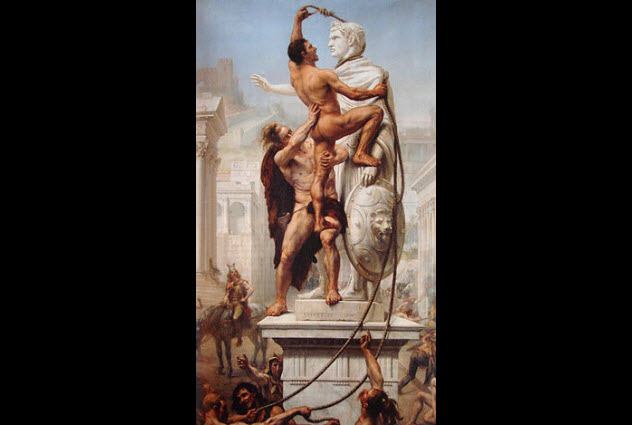
“My voice sticks in my throat, and as I dictate, sobs choke me. The city which had taken the whole world was itself taken.” So said St. Jerome, an early Christian Church father, when speaking of the sacking of Rome in 410, the first such attack in over 800 years.
The culprit: a brilliant strategist known as Alaric. Born into a noble Gothic family, he served in the Roman Army for many years before leaving to become the first king of the Visigoths. For years, he traipsed around Greece and Italy, only stopping when the Romans paid him large amounts of money.
The reasoning behind his sieges and the subsequent sacking of Rome was simple: Alaric was unhappy that his tribe had not been granted more land and other subsidies, and he wanted to right that wrong.
Allegedly, allies within the city opened the gates for Alaric so that his army could storm into the capital. For three days, they plundered, although they left the citizens and buildings relatively unharmed. Shortly after the sacking of Rome, Alaric died, most likely from a fever.
6 Pachacuti
Building Machu Picchu
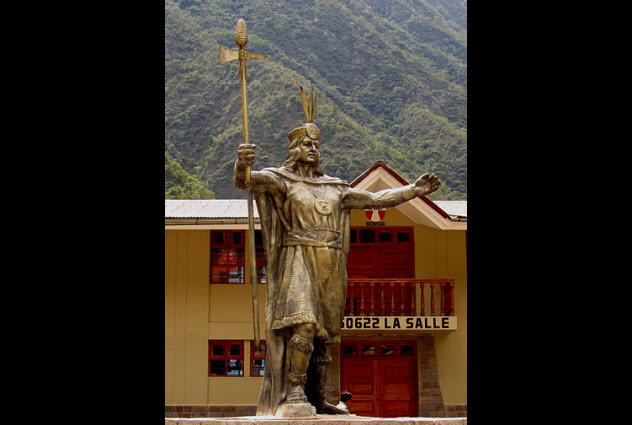
Pachacuti held sway over the kingdom of Cuzco during the 15th century and quickly began a military expansion which resulted in the foundation of the Inca Empire. Pleased with his success, Pachacuti began building commemorative royal estates in which he and his servants could live.
Built between 1460 and 1470, Machu Picchu was chief among these royal estates as well as a symbol of Pachacuti’s divine power. With its name derived from the words for “old peak,” Machu Picchu is perhaps the greatest representation of the Inca civilization.
The idea for the religious aspect of Machu Picchu is tied to a ceremonial stone column housed within the city. Known as an intihuatana (“hitching post of the Sun”), the stone column was used by priests during the winter months to “tie” the Sun to the stone so that it didn’t escape forever.
However, thanks in part to the Spanish invasion, the area was only in use for about 80 years before it was abandoned. Although various indigenous peoples continued to live nearby, Machu Picchu was forgotten for centuries.
Hiram Bingham III, the famous American explorer and the first nonnative to see the ruins since the Spanish, said of Machu Picchu: “Few romances can ever surpass that of the granite citadel on top of the beetling precipices of Machu Picchu, the crown of Inca Land.”
5 Menes
Founding Memphis
Menes is the earliest person credited with founding of the Egyptian city of Memphis, the capital city during the Early Dynastic Period. Memphis was built after the prehistoric kingdoms of Upper and Lower Egypt were united. Although this was also attributed to Menes, it may have been accomplished by someone else.
Manetho and Herodotus, two of the world’s greatest historians, described Menes as being identified with a handful of other rulers, including Narmer and Aha. Herodotus was the first to write about the legendary founding of Memphis, detailing how Menes diverted the Nile to build the city.
Memphis was originally known as the White Walls, a term possibly derived from the whitewashed brick walls of the king’s palace. The city was the Greek version of the Egyptian Men-nefer.
All told, Menes created one of the longest-lasting cities in history. It was inhabited from the 31st century BC to the seventh century AD before it was abandoned after a lengthy decline.
Even then, it remained a marvel. In the 12th century, the Arab Egyptologist Abd-ul-Latif said of the city: “The more deeply we contemplate this city, the more our admiration rises, and every fresh glance at the ruins is a fresh source of delight.”
4 Augustus
Founding The Roman Empire
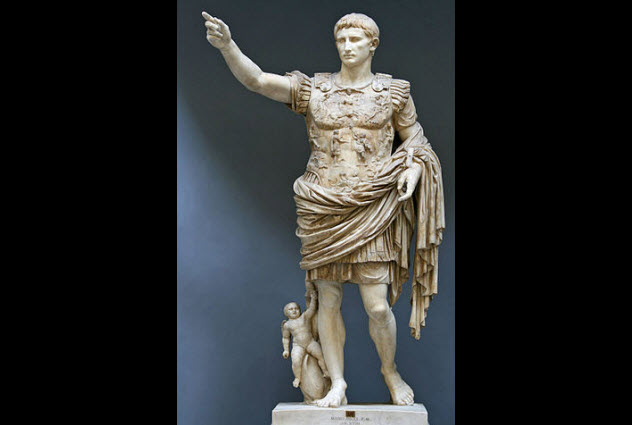
Augustus, who was originally known as Gaius Octavius, was sickly as a child and orphaned at four. He certainly did not seem destined for greatness. Luckily for him, he had a famous and powerful great-uncle: Julius Caesar.
Adopted by Julius Caesar and then made heir apparent, Augustus formed the Second Triumvirate with Mark Antony and Marcus Lepidus to wrest control from their enemies. Lepidus was later driven into exile, and Antony killed himself after he was defeated at the Battle of Actium.
Although it could be said that Augustus didn’t do much other than inherit the Roman Republic from Julius Caesar, Augustus did grow the empire’s holdings. He acquired Egypt and expanded into other parts of Africa and Germania.
Through the use of implied martial force, he convinced the Roman Senate and the people of Rome to grant him the title of Augustus and princeps civitatis (“first citizen of the state”).
He also became emperor, a role created to signify its departure from kings and monarchs. At least for the first few hundred years, the role of emperor was only hereditary if the heir was considered suitable to the Senate and the military.
Augustus was a hugely successful military strategist, a shrewd politician, and a consummate builder. He helped to commission works such as the Ara Pacis (“Altar of Peace”). Marcus Agrippa also deserves much of the building credit. According to biographer Suetonius, the ever boastful Augustus said: “I found a Rome of bricks; I leave to you one of marble.”
3 Themistocles
Defeating King Xerxes I And Persia
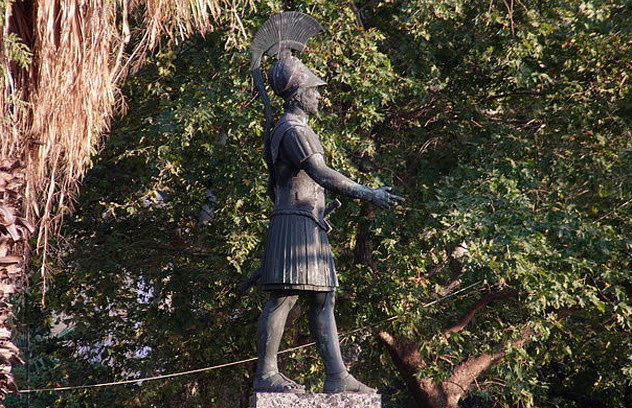
Themistocles, the creator of the Athenian sea power as well as a brilliant politician, saw the value in a strong navy. This view would prove vital not only to Athens but to all of Western civilization.
Themistocles’s father was from an aristocratic family, but his mother was not. She may not have even been Greek. As a result, Themistocles became an Athenian citizen when he was 16 years old.
When faced with scorn from those with a more cultured upbringing, Themistocles replied: ” ‘Tis true, I never learned how to tune a harp or play upon a lute, but I know how to raise a small and inconsiderate city to glory and greatness.”
After the Battle of Marathon, in which he was one of the strategoi (“generals”), Themistocles became the preeminent figure in Athenian politics due to his support among the lower classes. Chief among his ideas was that Athens would not survive a second Persian invasion and naval superiority was their only hope.
Thanks to his efforts (nearly 200 triremes were built in time for Xerxes I’s attack) and his brilliant subterfuge, Themistocles routed the invading force and saved Western civilization. Ostracized shortly afterward, he spent his last years as the governor of Magnesia, a Persian territory.
2 Sargon Of Akkad
Creating The World’s First Empire
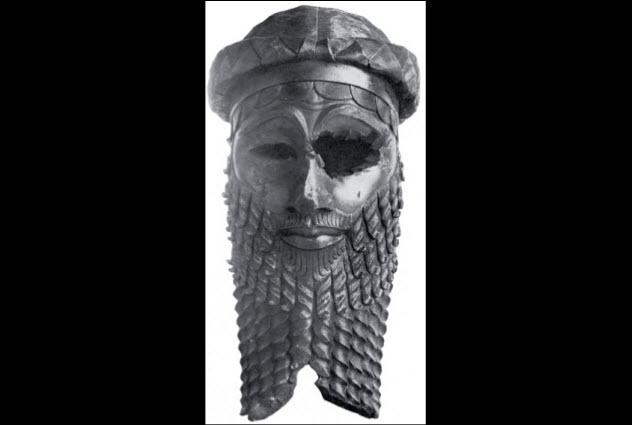
Sargon’s birth in the middle of the 24th century BC is shrouded in mystery and legend. Allegedly born the son of a high-ranking priestess and an unknown father, he was said to have been placed in a basket and abandoned in a river.
After being saved and adopted by a gardener named Aqqi, Sargon found his way to the king’s court. From his position as the king’s cupbearer, Sargon usurped Urzababa’s power and declared himself to be Urzababa’s successor in the kingdom of Kish.
As the Sun rose on the first day of his 56-year reign, Sargon began establishing the world’s first empire. During his time on the throne, he attained control of every city in Mesopotamia as well as territory stretching through what is now Iran, Turkey, and Syria.
Sargon also built himself a capital in the form of the city of Akkad, a place that is yet undiscovered. Much of what we know about him and his exploits comes from a Sumerian text known as the Sargon Legend, although a lot of his history has been lost.
Much like Cyrus the Great after him, Sargon took the title “king of the four corners of the Earth.” Unfortunately, his empire crumbled in subsequent generations. It lasted for only 75 years after his death before succumbing to the constant rebellions that had plagued even Sargon himself.
1 Ashoka Maurya
Uniting Nearly All Of India
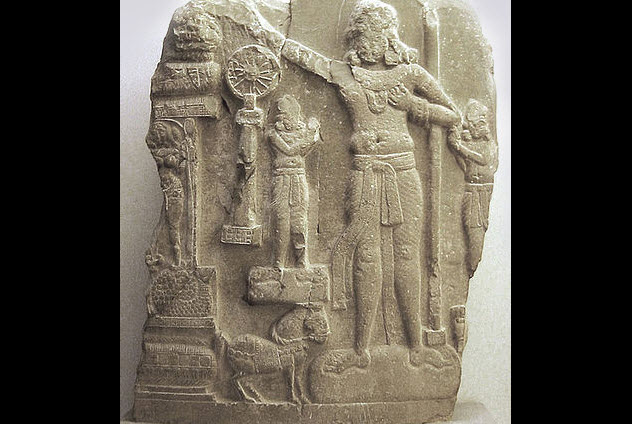
The great H.G. Wells described Indian emperor Ashoka Maurya thusly: “Amidst the tens of thousands of names of monarchs that crowd the columns of history, their majesties and graciousnesses and serenities and royal highnesses and the like, the name of Ashoka shines, and shines almost alone, a star.”
Around 270 BC, he ascended to the throne of the Maurya Empire, a power which ruled much of northwestern and central India. It also stretched west to Afghanistan. It was his grandfather, Chandragupta, who had pushed back Alexander the Great’s satraps.
However, southeastern India remained independent, a fact which Ashoka sought to change. A bloody war followed, culminating in the successful capture of the territory in the eighth year of Ashoka’s reign. The suffering was so immense, especially for the defeated peoples of the Kalinga country, that the newly crowned emperor of India felt overwhelming remorse. He renounced all future armed conquests and converted to Buddhism.
Resolved to peacefully change the world through the propagation of dharma, Ashoka instituted a number of reforms aimed at ending all suffering. He founded hospitals for people as well as animals. There were also edicts forbidding cruelty to animals. However, none of that good work helped his empire to last. It fell only 50 short years after his death.








